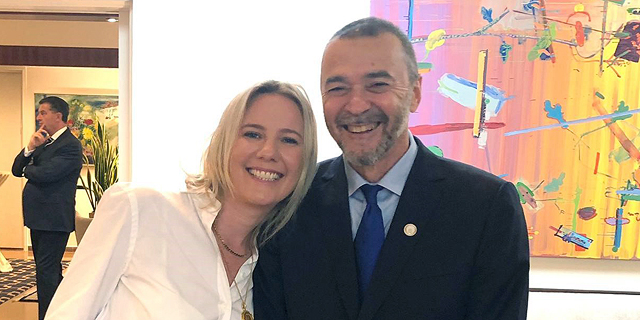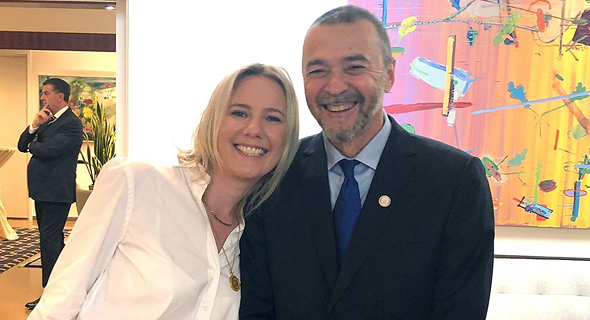
The Nacht Family Foundation Throws Lifeline to Music Industry Workers
The Inbar and Marius Nacht Foundation will donate NIS 3.5 million (approximately $1 million) to music industry workers who have been in dire straits in recent months. The donation will benefit 700 musicians, lighting professionals, amplification technicians, and production workers who will each receive NIS 5,000 ($1,407)
Raz Shechnik | 18:40, 14.05.20
The Inbar and Marius Nacht Foundation will donate NIS 3.5 million (approximately $1 million) to music industry workers who have been in dire straits in recent months, the foundation announced Tuesday. The donation will benefit 700 musicians, lighting professionals, amplification technicians, and production workers who will each receive NIS 5,000 ($1,407).
Marius Nacht is the co-founder of Nasdaq-listed Israeli cybersecurity company Check Point Software Technologies Ltd.
Many of the music industry employees are freelancers or independent employees who do not enjoy social security or unemployment benefits. The grant will be transferred directly to their bank accounts in accordance with the criteria set out in the fund, including consultations with the Tel Aviv-Jaffa City Performing Arts Department.
The foundation, which was established by Attorney Inbar Nacht, greatly increased its activity during the coronavirus crisis. Among other things, it initiated the establishment of a dedicated center to support the elderly population during the crisis, in collaboration with the United Union Rescue Organization, and launched the fundraising campaign for the nonprofit organization Leket Israel to provide meals to those in need. In addition, the foundation provides pro bono legal representation to self-employed and single mothers affected by the epidemic.
The foundation also funded a campaign in the ultra-Orthodox communities to explain the importance of maintaining the Ministry of Health's guidelines. In addition, the foundation established a national cancer network for cancer patients during the closure period when public transportation was greatly reduced.
